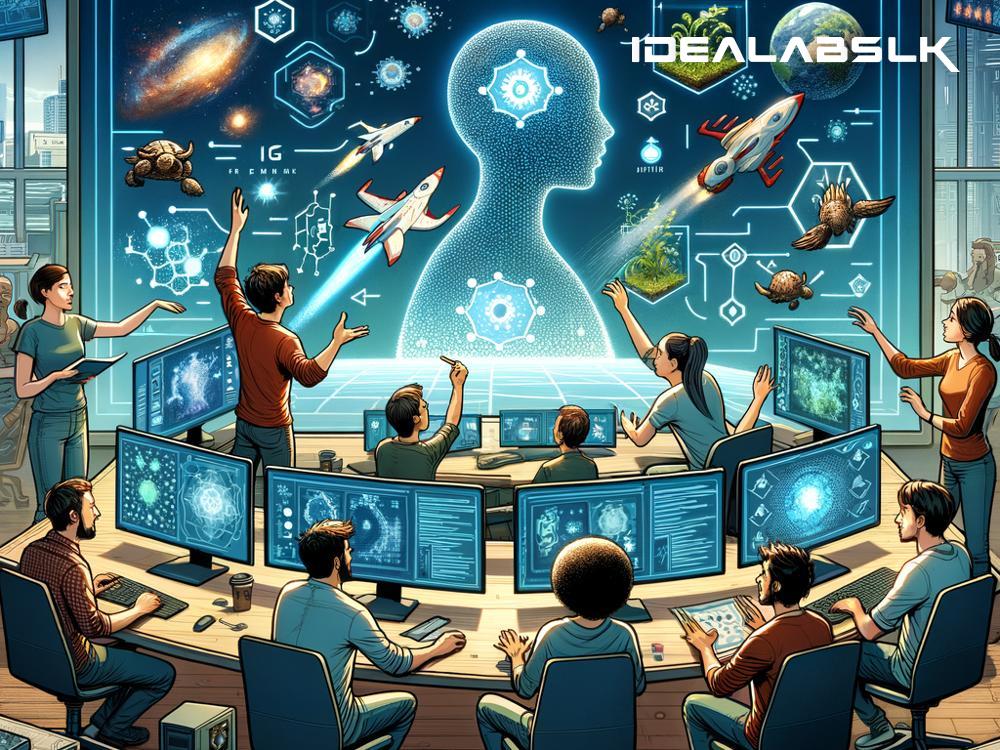The Future of AI in Game Design: Smarter Worlds and Systems That Adapt to Your Playstyle in 2024
As we step into 2024, the landscape of video gaming is experiencing a revolutionary transformation thanks to advancements in artificial intelligence (AI). Gone are the days when games followed a linear path with predetermined outcomes. The future of AI in game design promises a universe where game worlds evolve, and systems adapt dynamically to each player's style. Let's dive into how this next wave of technology is reshaping our virtual adventures into more personalized and engaging experiences.
Personalized Gaming Adventures Await
Picture this: you're playing a new adventure game, and instead of following a scripted storyline that's the same for everyone, the game's world changes based on your decisions, interests, and even gaming skills. This isn't just a dream. With AI, game developers are working on creating systems that learn from your playstyle and adapt accordingly, making each player's experience unique.
Smarter Worlds That Grow With You
Imagine entering a game world that evolves. As you explore, the AI observes your choices. Do you prefer stealth over direct confrontations? The game takes note, and perhaps enemies become less confrontational, relying more on strategy to challenge you. This level of adaptation makes for a world that is not only reactive but also feels incredibly alive and tailored to challenge you in the ways you find most enjoyable.
Characters With a Mind of Their Own
Character interaction is another area where AI is set to make significant impacts. NPCs (Non-Playable Characters) powered by AI can have their personalities, memories, and relationships that change based on your actions. Instead of having the same conversation with every player, these characters could remember your previous interactions and alter their dialogue or behavior accordingly. This depth of interaction adds a layer of realism and immersion that was previously unattainable.
Adaptive Systems for Varied Playstyles
One of the most exciting prospects of AI in game design is the development of systems that adapt to how you play. Are you a strategist who meticulously plans every move, or do you prefer charging in without a plan? The game's AI can detect these preferences and modify gameplay to better suit your style. This could mean altering enemy AI to be more aggressive or cautious or changing puzzle designs to match your thinking pattern. The goal is to create a fluid experience that feels custom-crafted for each player.
Overcoming Challenges and Concerns
While the future looks promising, integrating AI into game design is not without its challenges. One significant concern is maintaining a balance where the game adapts to the player without making it too easy or predictably challenging. Developers are experimenting with algorithms that can adjust the game's difficulty in real-time, ensuring that the experience remains engaging without crossing the line into frustration or boredom.
Privacy is another consideration, particularly when AI systems learn from players' behavior. Game developers and companies are working to ensure that these systems are designed with privacy in mind, anonymizing and protecting data to prevent misuse.
The Road Ahead
As we look towards the future, the potential for AI in game design is boundless. We're not just talking about making enemies smarter or crafting more complex puzzles. We're looking at a revolution that could redefine our very understanding of interactive entertainment. Games could become not just a form of escapism but a deeply personal journey that reflects who we are, how we think, and what we love.
In 2024, we stand on the brink of this new era. Developers are already experimenting with these technologies, and some games are starting to introduce these ideas in limited forms. As AI technology continues to advance, it's not hard to imagine a future where every game we play offers a world that's as unique as ourselves.
Conclusion
The future of AI in game design promises a shift towards more immersive, adaptive, and personalized gaming experiences. As game worlds become smarter and systems learn to adapt to individual playstyles, players can look forward to adventures that truly belong to them. While challenges remain in balancing these dynamic systems and ensuring privacy, the potential for innovation and deeper engagement in games has never been more exciting. As we move deeper into 2024 and beyond, the fusion of AI and game design is set to redefine what it means to play.

